|
Guest Blogs |
|
I am author Sean C. Wright-Neeley, and I write for multiple genres. My 8th book, Skoll’s Diary, is a sci-fi novel, unlike any other.
Africans and African Americans left Earth in 1900, and went to another planet in The Milky Way to escape mistreatment… It’s now the year 3005 on that terraformed planet. We get a peek into the life of a bright and sensitive teenaged boy, Skoll, through his journal. He loves his world, but is curious about life on Earth. Then suddenly, an epic event casts him in the middle of a difficult decision. The fate of the planet’s community is in his hands... You may follow me on Facebook & Twitter @Seanarchy. Follow me on Amazon: https://www.amazon.com/Sean-C-Wright/e/B07SWXCVK2/ref=dp_byline_cont_ebooks_1 IMDB profile: https://www.imdb.com/name/nm4192925/?ref_=fn_al_nm_1 Website: www.seanarchy.wordpress.com
1 Comment
Writing is essential for effective communication, being also a key strategy for brands to promote their products and engage with their clients. In a world dominated by technology and devices, the way people write has changed a lot. Writers are more focused on the quantity, instead of quality. What is more, it is scary to see how many poorly-written pieces are promoted online, some of them gaining incredible popularity. So, what is to be done? How can content writers improve their quality and stand out from the crowd? You will find the answer to this question and many more tips on how to reduce the issue of poor writing by reading this article.
What causes poor writing?
1.Read as much as you can The biggest weapon a content writer can have is staying updated with relevant information. When you decide to become a writer, you have two options: either you choose two or three niches on which you want to specialize, or you become a universal writer. Either option you choose, it is very important to read as much as you can about the topic you are going to write, as well as staying constantly updated with everything new in the industry. Moreover, even though you write a topic you have never heard about, you should do detailed research and find out what are the specifics that fascinate people and what makes them read an article. Furthermore, an efficient strategy that you can apply is creating news alerts on the subjects you want to specialize in. For example, Google Alerts is a very effective tool which you can use to receive daily updates on the topics you want to write about. 2.Understand who is your target audience One of the most common mistakes that many writers do is not asking their clients all the details when they receive an assignment. Usually, they receive the maximum number of words, the tone, and topic. However, this is not enough information as you will need to know who is going to read your article. Therefore, your client should give you details on what are the audience’s favorite products and which are their customers’ major problems for which they need an immediate solution. Based on this information, you will be able to write an article which provides relevant information, as well as meet the customers’ expectations. You can also check some of the best writing services reviews and learn from their guides on how to improve your writing skills by understanding who is your target audience. 3.Practice to make it perfect It is perfectly normal that writers don’t master excellent writing skills from the beginning. Just like any other skill, writing gets better with constant and ambitious practice. Moreover, you should be aware that you won’t improve their writing overnight. You will need to work hard and stay motivated to deliver impeccable writing. You can organize daily writing sessions and collaborate with professional writers to receive feedback from their side for your work. For example, you can write a short article every day on a given subject. Even though it may seem tiring in the beginning, this is an exercise which will help you get better in your writing and be able to freely express your emotions and transmit clear messages. 4.Use technology to your advantage It is absolutely clear that technology is part of our lives nowadays. We are constantly exposed to social media and the internet, browsing every day for new information on various topics. On the other hand, when you are a writer, social media and the internet can be a distracting factor. However, instead of leaving the internet and technology aside, you can use them to your advantage. For example, you can improve your writing skills by using various online tools for synonyms or grammar check. What is more, you can also use your mobile devices to read relevant articles and books relevant to the niche you want to get specialized in. Thus, you can improve your writing skills and find your ideas easier when you receive a new assignment. Final thoughts Writing is definitely not rocket science as it is not available only for those with innate talent. Anyone can be able to improve this skill with constant practice and permanent motivation. Moreover, you should put all the efforts to become better and trust your potential. What is more, you should write a short article on a new topic every day. Even though you won’t publish all your articles, this is an effective exercise which you can use to become a better writer. Doing extensive research and understanding your target audience are some of the techniques which will help you stand out of the crowd and reduce poor writing. Her twitter is twitter.com/danielamcvick You can reach Daniela at http://educatetips.com If you’ve written a book, chances are someone will ask if it’s on Amazon. And in all likelihood, your answer will be "yes" — particularly if you're an independent author, as Amazon's self-publishing branch Kindle Direct Publishing is a no-brainer these days for indie sales and exposure.
But just because KDP is a natural choice for self-publishing your ebooks, that doesn't mean it’s the only choice. There's definitely something to be said for "going wide" and including retailers other than Amazon in your distribution strategy. In this post, I’ll give a quick primer on why KDP can be a great option for indie authors, as well as a few reasons why you might consider expanding your sales horizons. The Benefits of Kindle Direct Publishing 1. The publishing platform is easy to use With KDP, uploading a book cover, inserting a book description, and formatting your product page is simple. And some sleight of hand with categorization and keywords helps users find your book title in the search bar – which means that you have Amazon’s powerful algorithm at your disposal. Though you'll certainly benefit from outside research, KDP guides you through the entire process and makes it easy to optimize your book for Amazon. 2. You get your book on the biggest retailer in the English-speaking world Even as early as 2014, Amazon dominated 65% of print and digital sales – which means that there’s no real “competition” against Amazon, despite what other consumer platforms may claim. Some independent authors are especially aghast at this kind of monopolization and will opt for a less saturated market. That’s understandable – but you have to balance your values over sales goals, especially in a competitive field like book publishing. 3. With KDP print, you can take care of your print books in the same place Formerly known as CreateSpace, KDP Print is a print-on-demand service with book cover and interior design tools. It’s a cost-saving measure because you don’t spend thousands of dollars printing books that don’t get sold. And KDP Print is especially helpful for ebook authors who want to link their sales pages together with one click — indeed, there’s even an option for print book customers to download the ebook version of a book for free, which may be an enticing bonus for your readers. 4. You can enroll in KDP Select for extra benefits If you publish with KDP, you can also choose to enroll in KDP Select: a program that offers additional promotional support in exchange for the exclusive digital selling rights of your book for 90 days. In return, you’ll have access to the Kindle Unlimited program (Amazon’s “Netflix for books”), be involved in site-wide deals, and join the Kindle Owners’ Lending Library, where users share books with others. Kindle Unlimited and the Lending Program run on a per-page-read royalty system, so you’ll need to make sure you’ve got a true page-turner before opting into them. Going with KDP Select makes the book publishing process a true one-stop-shop. “Going wide” involves a lot more work. While aggregators like Draft2Digital simplify the process by publishing and collecting royalties for you from a variety of sellers, there’s still a lot of personal effort involved. But, if you’re trying to make a business out of self-publishing, going wide is not a bad idea to contemplate… Why You Might Want to Also Consider “Going Wide” 1. Amazon isn't as huge in other territories While Amazon owns around 80% of the market shares in the U.S. and U.K., it’s not the only option out there. Kobo, for example, runs 25% of the ebook market in Canada and Apple Books represents 30% in Australia. These brands use creativity and partnerships to get noticed, too, which is an advantage for you. Kobo’s Walmart partnership, for instance, is a way to reach a wide constituency. You’ll miss out on these users by only distributing through KDP. 2. You may have a better chance of being promoted by real people Companies like Barnes & Noble often promote staff recommendations, so if you’re a top pick, you’ll reap the benefits of their email campaigns. Amazon’s algorithm will give you access to an audience greater than the size of these email lists, yes, but conversions can be lower amongst so much competition. And bestseller lists won’t be in your arsenal either, since listmakers like The New York Times require you to sell with at least two retailers before making the cut. For these reasons, if you’ve written the kind of book that you think will really shine under a more personally cultivated spotlight, you might want to avoid publishing through KDP alone. 3. There are certain royalty benefits While KDP allows 70% of royalties for books up to $9.99, some other platforms actually have better deals. Apple, for example, offers 70% of royalties on most print and ebooks regardless of price. Authors selling print books on Kobo can also benefit from 70% of the royalties at no price lock, which is great for box sets sold at a $19.99 price point or above. Granted, there are no rules when it comes to self-publishing and the platforms you choose. That’s what makes the process interesting – the manner in which you execute it can be as unique as your text. But it's important to manage your expectations before going in. By identifying the benefits and drawbacks from the get-go, you’ll set your book up for success from day one. Desiree Villena is a writer with Reedsy, a marketplace that connects authors and publishers with the world’s best editors, designers, and marketers. In her spare time, Desiree enjoys reading contemporary fiction and writing short stories. She's very passionate about independent publishing and hopes to help as many aspiring authors as possible reach their dreams! If you have any comments or questions for her, please leave them below, or you can reach her via email. The decision to start a blog is big. The decision to post to a blog regularly for the unforeseen future is even bigger. It requires time, sacrifice and takes you away from other tasks—especially when you're a writer. While you can argue blogging is writing and any practice makes you better—writing blogs instead of your WIP doesn't get your book completed any faster! Blogging does have its perks, though. Nowadays, it's part of the "Author Platform" expected for modern writers and puts you in touch with other authors, readers and helps sell your books. But like anything in life, and even if you love it, you can find yourself in a blogging rut. I've had my share of ruts since my blog launched in 2017. There have been posts I've loved that no one has responded to. There have been posts that took ten minutes to write that became my most popular. I've spent a whole week on posts and I've written posts the night before I needed to publish them. I've sometimes wondered if I should keep blogging and I've had readers telling me not to stop blogging (thank you!). If you've found yourself in a similar blogging rut, these are the ways I've found to dig your way out. Getting Out Of A Blogging Rut
Take A Break
I know I just said to dig out of the rut and now I'm saying to take a break, the thing I'm not saying is to quit. If you still have the passion to blog but it's just taking a little longer to get into the groove, all you need to get your mojo back is to take a break. The only time I've not posted weekly blogs was after having surgery in 2018. I was physically and emotionally drained and just couldn't do it. I was also creatively blocked, so that didn't help. What helped was leaning into that and taking time off. Sometimes you've got to take a break, forced or not, and just give yourself time to be creative again. Build Up Posts When You're At A Creative Peak
Earlier this year I hit another creative low. Then I went to my first writers conference and got enough material for several posts. Having those posts written gave me a few weeks break from having to pen new blogs, and that allowed me to avoid the rut I was careening toward and work more on my current WIP—refilling my creative cup. If you ever get into an inspiration peak, go with it and write as many blog posts as you can. They don't even need to be more than a rough first draft. Just having a backup of content takes the pressure off and can really keep your blogging going.
Change Things Up
While routine can be your best friend when you're a blogger and is one key to regular posts, it gets boring. Knowing you've got to piece together yet another blog post when it feels like you just finished one can spiral you right into a rut. When you feel like you can't take another day of writing intros, thinking of snappy titles, and finding one more image of a generic desk with a laptop on it, it's best to change things up. Write a different kind of post. Use different pictures. Change your blog theme. I recently launched a newsletter (which you can sign up for here). It's not often I write about blogging, so this post in itself is creatively different, but you could also try adding gifs, images, or color to your posts. Anything that will make it feel like you're not repeatedly churning out the same thing. Designate A Blogging Day
Running a blog while writing my YA series Blackbirch was getting overwhelming and the writer-guilt of feeling like I wasn't doing either properly seeped in. When you're feeling negative about the task at hand, that rut looks mighty cozy and a great place to stay. So, I implemented a non-overwhelming writing routine. Now I have a designated blog day where the only writing I have to do on a Tuesday is a blog post. If one is all I can do, then that's all I do—guilt-free! If I get into a creative flow and write as many posts as I can, I'm then ahead. I aim for those goals every Tuesday, so I'm building up my post stockpile and pulling double-duty to keep myself out of the rut. Start An Ideas System
One reason you might get into a blogging rut is that you don't have any idea what to write from one week to the next. Planning can help with this, but if you aren't a planner, at least try to become an idea-er (or something that's a real word). Brainstorming helps. Just sitting down and trying to think of what you'd like to blog about is usually enough to kick start ideas. If you come up with multiple ideas, start an ideas system. It's as simple as typing them out in a notepad file or Word doc or writing it down in a notebook (but not one of the pretty ones you bought but will never write in). I use Scrivener and have all my blog ideas in separate note files with the title as the file name. That way I can just scan each file at a glance and decide what I want to work on or drag them to a dedicated "month" folder so I can plan my content and make sure I'm not blogging about similar topics in the same month. I've got such files going back years, including the year I thought about blogging before actually launching my blog. I may never write all of those ideas, but having them is like having a shovel to dig yourself out of a blogging rut—and is something I highly recommend. How about you? What do you do to keep your blogging fire burning? Share your tips in the comments below! — K.M. Allan You can find me on Instagram, Facebook, Twitter, and Goodreads. 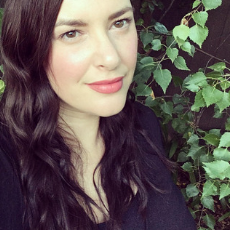
K.M. Allan is an identical twin, but not the evil one. When she’s not writing, she likes to read, binge-watch too much TV, and take more photos than she will ever humanly need. Visit her blog at kmallan.com to discover the secrets of the universe, or at the very least, some good writing tips.
 We’ve all heard that good characters are the lifeblood of fiction, and when I began work on Gnosis, I didn’t want to scrimp on this vital effort. In keeping with my usual manic personality, I did a bunch of research into character creation. I took my time and consumed a mountain of information on the subject. There are lots of excellent books out there, but to a certain degree, they all required a bit of 'art' to getting the details right. Nothing catered to an organized, systematized approach, and that's what my brain feeds off of. Eventually, I found my way to Myers-Briggs personality types, and quickly drank the Kool-Aid. Although MBTI types have their detractors, mainly because they’re not terribly predictive of real-world human behavior, they turn out to be perfect for creating fictional character models. The idea behind them is that they endeavor to categorize human personalities into 16 basic types, represented by four letter combinations, like INFJ or ESFP. There are two choices of letters for each of the four positions, providing for a total of sixteen possibilities: ENFJ, ENFP, ENTJ, ENTP, ESFJ, ESFP, ESTJ, ESTP, INFJ, INFP, INTJ, INTP, ISFJ, ISFP, ISTJ, and ISTP. These mysterious looking codes, somewhat reminiscent of genetic markers, are quite simple when broken down into their individual components. Taken from first position to fourth, the letters mean: I or E – Introvert or Extrovert N or S – Intuitive or Sensing T or F – Thinking or Feeling P or J – Perceiving or Judging Although the terms above are somewhat misleading, if you do enough reading on the subject, they eventually make sense. If you’re utterly fascinated by this, feel free to read the definitive work by Isabel Briggs Myers, Gifts Differing. Fortunately, as noted earlier, I’m a bit obsessive, so I did a lot more than read this one book. I read dozens. I scoured the Internet, interviewed a number of psychologist friends, and eventually cobbled together my own typing system, so I could adapt Myers-Briggs to my purposes. After about seven months of research, and a few ever-more-complicated software prototypes, I’m finally happy with the current iteration of the JavaScript tool I’ve created. My tool basically allows a writer to quickly put together a character sketch based on a handful of dominant trait choices. You can provide as much or as little information as you want, but with each bit of data you give, the software filters the possibilities for subsequent choices. It forces you to remain consistent within existing Myers-Briggs types. The result is that with a very minor time-investment, you can assemble a character that makes sense. It won’t be a random collection of traits that don’t belong together. It will be behaviorally consistent. So what does ‘behaviorally consistent’ mean? Well, let’s consider a simple example. Let’s say your character is an Introvert. Generally speaking, most Introverts are uncomfortable in large group settings. They tend to be shy at parties, dress in less ostentatious ways, and are often poor at reading social cues. They even have common ways of speaking, food preferences, and hobbies. (These tendencies don’t describe ALL introverts, however. Only some of them. But that’s another discussion entirely.) This being the case, your Introverted character would most definitely not act like Tony Stark (Iron Man) from the Marvel Comics movies. Robert Downey's version of Tony Stark is about as far along the extroverted scale as a character can get. Unfortunately, there are LOTS of different flavors of introverts. They range from the dreamy, offbeat Luna Lovegood (Harry Potter), to ruthless 'fixers' like Doug Stamper (House of Cards). There are opinionated know-it-alls like Cliff Claven (Cheers), and steadfast confidantes, like Dr. James Wilson (House MD). It’s simply insufficient to label a character as an Introvert or an Extrovert, and think you have something interesting. Personalities are far more complex and nuanced than that. My Character Creation Gadget helps you navigate the sea of possibilities, and define the core of your character. The result will be consistent with each of the components that make up a particular Myers-Briggs designation, and the best part is, you don’t have to understand how any of the psychology works. The tool will make sure you color within the lines. Click on the image to the left to go to my Character Creation Gadget. It will open a new browser window and load up the tool. (You may have to turn off your popup blocker to see it.) Give it a few seconds to load up all of the data files. The word “calculating…’ will be displayed in the workspace while it does this. When it says “Ready”, you’re good to go. You might want to check out the “Help” button in the upper left corner first, as this will give you a quick 8 minute YouTube tutorial that shows you how everything works. (And yes, I couldn’t resist putting a link to my novel, Gnosis, in the upper right corner of the tool. The tool itself is totally free to use, despite the amount of work I put into it. I like giving back to the writing community that gave so much to me. But if you’re of a mind to show some appreciation, please do consider following the link to my Amazon page and picking up a copy of Gnosis. It’s only 99 cents and after the first two months, it has netted all 4-and-5-star reviews.) Mark tells me that he had a small issue when my tool turned off his Spartan Clips software, but he was able to turn it right back on again without issue. My Character Creation Gadget is still in beta, so I'll continue to try to resolve little issues like that. In the meantime, feel free to drop me a note if you find a bug, or have suggestions for new adjectives, archetypes, characters, etc. Enjoy!
Of course, you’re a writer if you write. The act of putting words down on paper to create a story is the very definition of being a wordsmith, but what takes you from wannabe writer to writer, and then upgrades you to a serious writer? Spoiler alert, actually writing is only a small part of it. 10 Signs You’ve Upgraded To Being A Serious Writer 1. You’re not afraid to show others what you’ve written. 2. Receiving rejections from agents and publishers no longer stings (as much). 3. Sending a query or submission doesn’t fill you with (complete) fear. 4. You’re happy to pass on the advice that you’ve learned to other writers. 5. You’re writing daily or regularly enough that actual pages are being added to your MS. 6. Ideas for stories come thick and fast. Your creative brain is always on. 7. You’ve started a social media account or a blog dedicated to just your writing. 8. Walks and commutes to work are soundtracked to writing podcasts instead of music. 9. Your TBR pile now includes non-fiction books about editing or the craft of writing. 10. You have money put away for writing courses and/or professional edits. A writer might start off their journey as a wannabe, daydreaming about ideas or noting down a few lines of purple prose every now and then. One day, they might decide to give writing a "real go" and get as far as a terrible first draft that languishes in a drawer. It might be years later still before they learn more, practice more, and apply those skills to the next manuscript, the next draft, the complete rewrite, and the endless edits before finally typing, “The End”. If they're consistent and work hard, they may even get to write “The End” on multiple manuscripts, but being a serious writer isn’t about completing as many WIPs as you can, it’s about what you do with those pages of gold afterward. No true wordsmith wants to spend all that time writing a book that no one else will ever read. Give your MS to family, friends and beta readers. Submit to publishers. Enter writing competitions. Launch a blog. Start your own writing podcast. You might not see all the signs in yourself yet, but even if you can only cross off one or two on the list above, you're well on your way. Be a wannabe until you're a writer, but then don’t forget to upgrade to being a serious writer and do something with what you’ve written. — K.M. Allan 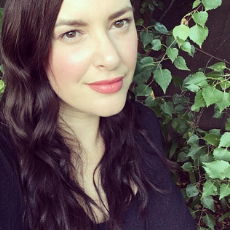
K.M. Allan is an identical twin, but not the evil one. When she’s not writing, she likes to read, binge-watch too much TV, and take more photos than she will ever humanly need. Visit her blog at kmallan.com to discover the secrets of the universe, or at the very least, some good writing tips.
So you’ve finally done it. Written a book after hours at the keyboard, filling in plot holes, shedding tears, drinking cups of tea, and fending off self-doubt. You’ve even made it through beta readers who questioned your genius and still found typos. Your book is perfect, and more than ready to be snapped up by a publisher. Sure, there will be some rejections, but you’ll welcome those because you’ll need a rejection slip to hang on your wall and keep you humble when you’re rolling in royalties and five-star reviews. But that publishing deal hasn’t come. It must be them, you tell yourself. There’s no way it could be your book—it’s perfect! You decide to take a look at the MS, just to confirm that it’s still as wonderful as you remember. Then you see it, the reason those form rejections have been coming in thick and fast. Your MS isn’t perfect. You’ve looked at it with fresh eyes, the realistic eyes that can see the mistakes. Those amateur mistakes, such as… AuthorsplainingOtherwise known as not giving the reader any credit and explaining everything. You want them to know why Jessie hates Carl as soon as they’re introduced. No using curt remarks to build tension, or dropping hints to create some mystery, you’ll just explain it all then and there! Same deal when it comes to connecting the intricate threads of your mind-blowing plot. You can’t be subtle with those threads or rely on the reader to make those connections. What if they miss something? Can you trust the reader to work things out for themselves? Yes, yes you can. As the author, you may want to authorsplain the finer points to get the story onto the page, but that’s what the first draft is for. Tell it to yourself, then cut it back and find the right balance. Test with beta readers how much little info you need to give in order for a reader to understand what you mean, and then allow them to fill in the blanks. It makes for a much more satisfying read. Info-dumpingThis is one of the basics of writing, but it can be tricky to master. Info-dumping, especially in the first few chapters, is a mistake all amateur writers make, some without realizing they’re doing it. It’s another one of those elements you’ll need during the first draft so you can work out your plot, but after that, you’ve got to use your other drafts to break the info up. Don’t use a page long narration from your MC to explain the situation she’s in, foreshadow it, drop cryptic hints, have a short but sweet conversation between two characters that gives you one half of the story, and the rest of it later. As the writer, you know that the info is important to the plot, but it doesn’t need to be dumped on the very first page! Save some for the middle, bring it all to a head at the end. Let your characters and the reader live in the moment and find out what they need to know at key points only—not all at once. Stage DirectingHands up if you over describe how a character gets from Point A to Point B? I’ve done it, in fact, I can’t help including almost every single detail when it comes to my characters' movements. It may be part of my early draft writing process, but I really don’t need to keep in my later drafts that my MC heard the doorbell ring, put down his cheese sandwich, slid the chair back from the table, walked through the living room, wrapped his fingers around the silver knob, and pulled open the door. Save the stage directions and the lengthy descriptions for when you need to invoke some real imagery, or to make a payoff work. The most important thing the reader needs to know is who is at the door, not a step-by-step of how the MC answered it. Extreme Scene SettingSome writers can set the scene of a book so well it’s almost as if it’s another character. For us amateurs, you’re better off mastering how to give the reader only what they need to visualize the setting. The trick to this is adding just enough detail to create a sense of space or what the place looks like while allowing the reader’s imagination to do the rest. For example, they might need to know a living room has a couch because a character is sitting on it, but they don’t need to know about the rug, the coffee table, the lamp, the TV, or the fake plant sitting in the corner. Unless the lamp you painstakingly describe for five sentences is going to be the murder weapon (in which case, you and Professor Plum better hightail it out of there), stop wasting words spelling it out. Most readers would have seen a living room and will get an understanding of what one looks like with a few choice words. While it may take an experienced eye to spot these amateur mistakes—and even more practice to stop making them in new drafts—mastering them will make you a better writer. One who will, hopefully, one day, also have an acceptance letter to hang on their wall. — K.M. Allan 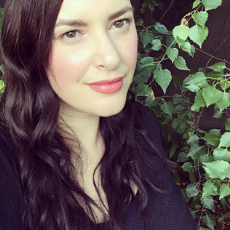
About K.M. Allan
K.M. Allan is an identical twin, but not the evil one. When she’s not writing, she likes to read, binge-watch too much TV, and take more photos than she will ever humanly need. Visit her blog to discover the secrets of the universe, or at the very least, some good writing tips. There are a lot of reasons writers quit writing, but this is perhaps the deadliest. A conversation in a local coffee shop the other day sent my mind in a whimsical flurry back to where I was a handful of years ago. The point that nearly broke me as a writer, and it had nothing to do with finishing a first draft. I was talking to someone about my off-grid cabin, the conversation slipped into my novels and content creation, and he mentioned a friend of his who had thrown in the writing towel fairly recently. The reason that person had quit struck me directly in the feels, because I've been there. If you've be an advocate of self-publishing from the start, this might not resonate so much, but anyone who has tried to land an agent may know this devil in the details far too well. If you are a budding novelist, please take in the entirety of this article and let it simmer. Come back to it again if needed. This one mistake will most certainly sink any hope of a writing career, and you don't want to make it. So the Story Goes Many people think the first draft is the hardest part of writing a novel. The truth is that draft is the first in a series of hurdles that will continue for the rest of your life. This isn't a 100 meter dash, it's a steeple chase...that never ends. My new friend recounted the story something like this: A friend of mine wrote a book. He spent a long time working on it. I don't know how you guys normally do things, but he was trying to get an agent and pitch the book to big companies. He finally ended up tossing in the towel. Sound familiar? Let me quote you another little passage: After pitching it to over 100 agents, ... I cut the sequel short, and had a lapse of "writer's block" for three years. Strike that, I let myself fail, for three years. ~McConnell - Finish the Damn Book!I had gone through exactly what this guy's friend had, and it took a pretty fired-up poker to get my butt back in the writing chair. I don't know if this young writer will experience the same, but I plan to meet with him someday and educate him more about the process. The Little Dragon of Writing Among a lot of other advice, one thing I was told over and over again in the early days of novel writing was that the first book is just that. The same root that causes this "writer's block" nonsense in the drafting phase (The seed of doubt, or the dragon's egg) spawns something far darker and scarier in the editing phase. Looking back on your own words after writing 100,000 is pretty daunting. But even that is nothing but the hatching of a baby dragon that will learn to breath fire as you enter the querying phase. When you start to query, if you're smart, you'll have your query letter torn apart by other writers. They will question the merit of your story as an agent would. They'll drill you about the stakes, the plot, and how dull you make the whole thing sound. They'll stab at your ability with hopes that the book isn't as boring as your query letter But all of this is good. You hammer down the query and perhaps revise a few things in your manuscript. You probably put in another round of editing just for good effect, and you're ready to face the dragon that is rejection. My first novel was rejected over 100 times, mostly on the strength of the query letter alone. Without sending a response, these people told me that my story sucked without ever reading it. This has happened before, and it'll happen again, maybe to you! I can think of one blog follower that's reading this right now with her eyes sharpened to my every word. For you, I'll drop a little hint here: Be ready for rejection. Expect it. Welcome it. Write the next book. The cloud of darkness during the submission process can be daunting. Ask me how many of my stories have been tossed out by almost every literary mag that exists before I got a tiny spot in an upstart mag for the second year in a row. Not exactly a Nobel Prize, but it's a little feather in my cap. By the time you've worn yourself out sending matched queries to agent after agent, been torn apart by your peers, and look upon your shiny new script with scorn, a little piece inside of you will die. An alchemist would call this step putrefication or calcination. A phoenix can only rise from dead ashes. Rebirth, New Life, New Stories So the dragon gave you a good roasting. So what? Even before I got back into writing again, I encountered a ton of good advice to supplement the bad. It wasn't enough, but I'll share some of it with you now, just so we're on the same page.
It would be wrong not to paraphrase my favorite Steven Pressfield story here. After his first movie hit the theaters, the reviews came in, and it sucked. He even drove out of town to see how it was playing in other theaters. Same result. He asked the guy at the ticket booth, "How's King Kong Lives?" (did I get that title right? Doesn't matter) The register jockey gave him a big thumbs down and replied, "Miss it, man. It sucks." After talking with his mentor, he was given the option. Take a few knocks and keep writing, or quit. Thanks from all of us, Steven, that you kept writing. We all get crushed. We get hard knocks. Our egos get beat down and withered. Those hi-toned authors at the last con may dress themselves with a confident facade, but trust me, they have plenty of skeletons and monsters in their closet too. One friend of mine landed a deal with a publisher, through an agent, and his book went out of print a year later. Writing is the kind of job where you face rejection and harsh words all the time. The more successful you are, the more people there are in the world that hate your work. It goes with the territory. The silver lining in all of this is that you aren't standing on the sidelines, or shouting from the nose-bleeds. You're down there in the mud, bleeding your heart into something you love. So screw the haters. You have two choices. You can keep writing. Or you can quit. Greatness courts failure. ~Tin Cup Actually, I encourage you to look up that scene on YouTube. There's a lot of wisdom in very few lines... here you go: How to Carry On Keep writing. It's that simple. If you have to shelf the first novel, or second, or tenth, then who cares? Some of us put our work on WattPad. Some self-publish. Some start their own media companies, or do freelance work for a while. Some of the best shit that I've ever written doesn't have my name on it, and I made less than minimum wage writing it. But it's out there in the world, helping people live their lives while helping others build their businesses. The goal of every story is to last, to be told and heard, to be repeated, and to live on. Some stories stay small and local, others go big time. It's not a mark against you. It's just what the market is shopping for that day. Don't be let down by rejection slips, failed queries, and all of this other nonsense. Start writing another story. If you played the agent game and got burned, then welcome to the fucking club! You're doing what you're supposed to be doing. You didn't fall for a predatory publisher, and you finished a freaking novel. Give yourself a pat on the back, and start on the next story. I don't recommend framing your first story as a trilogy, even if it has the potential, for that reason. You're first story is akin to your first painting, your first gig as a musician, your first marathon, or your first day at a new job. Yes, writing a novel takes a while. Editing takes longer, and marketing is a frickin' nightmare. Embrace it. Keep telling stories, keep honing your writing, and get on the path that YOU are meant to be on. Don't worry so much about the cookie-cutter professional publishing thing. You can always submit new books to new agents, and perhaps one day you will land one, but keep telling stories. If you stuck it out through one novel, you can write another one, and the next one might be better than the first. Keep learning. Keep growing. Drive your own plot. I had a family member to give me the kick in the ass I needed to write the Incorporated series, which led me to the original publisher for Viral Spark. Don't count on having that. If you need to be kicked in the pants, I'm here, and I have a heavy pair of boots. Shoot me an email. But it's far better for you to realize that getting kicked in the teeth is part of the game. So what? Move on. You have other stories to tell, and if you don't, the world will never see them, and they'll die. ... or quit. But understand now that quitting will be your own choice. You can't unread this article, and now you know that this is something that ALL of us go through at some point. Slaying these little dragons is part of the job.  Martin McConnell, author of Finish the Damn Book!, holds a Physics degree from SIUE, and when he isn't writing speculative fiction, he's motivating other authors, stargazing, reading, or playing Kerbal Space Program. He avidly encourages everyone he meets to seize control of their dreams by driving their own plot. You can find him at his website writefarmlive.com. 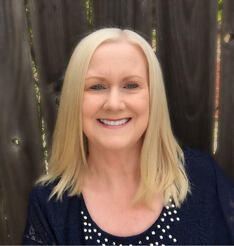 You’ve written your first book or your tenth book, the amount doesn't matter—how do you get your book in the hands of readers? Book signings? Pitch to local bookstores? Libraries? Social media? Advertising on social media or on Amazon? If you’re counting on social media, you could be banned in an instant. Recently, you may have heard on the news several prominent users with millions of followers were banned from Facebook and Instagram. If you were to be banned from social media would you still have a way to communicate with your readers? You can’t count on social media, but you can count on your email list that you’ve built by sending out blog posts (a.k.a., newsletter, articles, updates). What’s the first thing you see when you go onto a website? It’s that annoying “Sign-up for our email/newsletter/list” – it pops up or swooshes in from the side or it takes over the screen. Sure they want you to receive their content, but more importantly, they want to know where they can reach you. I’m signed up to receive emails from some big-name authors. Yes, even the big names want your email address so they can still reach you if something goes awry with any or all other marketing channels. The email list is golden. How do you get an email list? Blogging from your website or a blogging platform (many how to videos on YouTube, look for recent videos as services change). Email services are typically free until you reach a certain number of subscribers. I began blogging before I published my first novel, everything I’d read said blogging was a must. It’s a conundrum for authors—with nothing published what would you blog about and why would anyone sign up to receive something from you? You have to start with friends and family. Blog about what inspires you. Something drew you to write in your genre; think hard, what inspires you? Is there a specific era or event? Maybe there’s a location? Paris, France has been the inspiration for many romance novels. Let’s say you write historical romance inspired by Paris. You could blog about Paris and drill it down to specifics. What was happening in Paris during the time period you write about? Was there a street you fell in love with when you vacationed there? In my case, I write in the mystery/thriller genre. Because I worked in public education, school crime inspired me. I blog about my school crime research. Blogging about research is fun and most authors have a plethora of research. How about zombie apocalypse genre? You may have pondered what if people in Chicago, Illinois, were infected with a virus that turned half the population into zombies? Actually, that may have been Bird Box. Okay, let’s use Bird Box as an example of what to blog about. You could write about the city setting which inspired the city in the story, and the same for the grocery store, the bird’s behavior, the river, the cabin, the bird sanctuary, etc. A word of caution—when you do blog, keep it relevant to your books. If you write war stories, blogging about your passion for cooking will not help you get your war stories to your target audience. Here’s where I’m guessing you feel like this is too much. There’s a bonus I didn’t know when I started blogging—your writing will improve because it doesn’t matter if you’re writing novels, articles, or blog posts, it all helps to improve your writing. Lastly, run your blog posts through a grammar and spelling check the same as you would for your full novel (or have Word Refining proofread them for you). I use Grammarly for blog posts and love it, here’s a link to the free version (I’m not an affiliate – I just love it). Grammarly So to blog or not to blog--YES! Blog and be consistent and cohesive. If you say, you’ll send out your blog post every Saturday, stick to it. Steven King sends out an email about every six months or when he has news. Email me if you need help deciding on what you should blog about or how to blog in general. We can figure it out together—authors helping authors—with no strings attached. [email protected] About Robin Lyons, Author Robin Lyons writes mystery/thriller stories based on disturbing reality. The concept for her School Marshal series came about after a beloved school principal and friend in her hometown was gunned down in his office by an employee. The loss felt by the school district and community was tremendous. The tragedy changed Robin's view of life in a small town. Check out the Research Blog where she shares information from researched cases, true crimes occurring at or connected to schools. Twenty-nine years working as a school employee and six years as an elected school board member provided plenty of inspiration for her stories. www.robinlyons.com/ #blogpost #blogging #blogcontent No matter what kind of author you are, querying agents can be a pretty arduous process — especially if you’ve never done it before! You’ve probably heard different bits of advice here and there, so you may not be sure what the correct protocol is. After all, a query letter is supposed to perfectly encompass your book in such a way that agents will be squabbling to take it on — a tall order for what should only be a single page of persuasion.
That’s why I want to help you get this process exactly right. Here are five tips and tricks for querying agents that will start you down a path to success. 1. Keep your synopsis short and snappy When trying to fit a lengthy book into a page-long query letter, it’s hard to know what to include vs. leave out. You might be tempted to dive deep into your book: covering not just the main characters, but the secondary characters, subplots, and underlying themes you feel are important. But your query synopsis is not the place to do this! When querying, it’s crucial to keep the summary of your book as short and snappy as possible. Otherwise, agents may not even read it — or if they do, they probably won’t remember it. And nothing’s a one-way ticket to an agent’s “reject” pile like an unmemorable synopsis. When crafting your own, remember that there are three parts to a great query synopsis: the hook, the key plot points (read: not all of them), and the wrap-up, all of which should take up about a page. You likely already have some idea of what a hook is: it’s the most exciting or original aspect of a work, the thing that makes it stand out from the crowd. For example, if you were Alice Sebold writing a synopsis for The Lovely Bones, your hook would be, “Narrated from beyond the grave, this book tells the story of Susie Salmon, who’s killed by her neighbor but can still see him — and all her friends and family — from heaven.” Following this would be the key plot points, which should be 3-5 sentences at most. You’d round it off with some kind of resolution, which I’ll talk about next. And bonus tip: if you can convey your writing voice in your synopsis, that’s even better. Just make sure you’re not doing so at the cost of brevity (which is the soul of wit, after all). 2. Include the ending One of the most common misconceptions about querying is that you shouldn’t include the ending of your book, because you want to “always leave them wanting more,” as P.T. Barnum supposedly said. But, just like that quote being misattributed, the sentiment isn’t exactly sound when it comes to querying. The truth is, most agents don’t care about story endings being “spoiled” for them — in fact, it’s encouraged, especially if you have a great ending. After all, agents who don’t have the time or patience to read through a long-ish synopsis certainly don’t have the time to read your entire manuscript just to find out your ending and decide to represent you. So even if you have the best twist ending in the world, don’t use it to bait agents without telling them what it is: just reveal it outright in your synopsis. 3. Use effective comp titles On top of your hook and ending, another great way to sell agents on your book is to use comp titles. What are comp titles, you ask? Well, you’ve probably already used them: if you’ve ever described a book, film, or other piece of media as “[Thing A] meets [Thing B],” then you’re a regular comp title connoisseur! As you can surmise from this, comp titles compare something relatively unknown (or unknown to the party being addressed) to things that are well-known or successful in their field. So if you’ve written a magical adventure novel that takes place on a desert island, you might pitch it to agents as “Earthsea meets Robinson Crusoe.” However, there are two critical things to avoid when using comp titles to describe your book. The first is choosing comp titles that are super-famous and popular today — it would set expectations way too high. For example, you wouldn’t want to compare your book to Harry Potter and Divergent. The second is that you usually don’t want to compare your book to two other titles that are very similar — e.g. “Robinson Crusoe meets Swiss Family Robinson” — because it doesn’t provide a particularly notable take. You’re basically just saying, “My book is part of this genre, same as these other two books,” which the agent should be able to figure out by themselves anyway. Remember that your comp titles should make your book seem unique, yet identifiable within the literary canon. Moreover, if you use comp titles really effectively, your agent might even pitch your book that way to publishers — and your publisher could use those same comp titles to attract readers down the line! So think carefully about your comp titles, because they may end up going a long way. 4. Query selectively If you’ve ever written a book (and if you’re reading this article right now, I’m guessing you've at least gotten started), you know that the finished product takes some serious blood, sweat, and tears. In fact, it’s like a child to you at that point — and you wouldn’t let just anyone take care of your child, would you? By that logic, you shouldn’t let just anyone handle your book. You want someone who will actually care about it, and who has experience with your genre or subject matter— just as you would want someone with previous childcare experience to look after your child. (At least, I hope you would.) So when you’re deciding how many agents to query, and what conditions they should meet, keep quality over quantity in mind. If you really do your research into each agent’s mission statement, the books they typically represent, their greatest past successes, and their current demand, you should be able to find a small but superlative pool of agents to contact. Personalizing your query letter accordingly would be your next step. Trust me, this will lead to much better results than sending out a mass query to every agent’s email you can find! If you put the work into your research, you’ll get someone who’s actually invested in your work, and you’ll be that much closer to getting a publishing deal. 5. Follow up Finally, if you don’t hear back from an agent who seems like they’d be a great fit for you and your book, follow up with them! Of course, sometimes agents take a long time to sift through their emails, and their not getting back to you might simply just be a product of that. But if it’s been a couple weeks and you haven’t heard anything, you’re well within your rights to send a brief follow-up email. That follow-up could be the difference between an agent you settle for and an agent who’s your professional soulmate. If querying doesn’t go well, or you’re getting frustrated with how long the traditional publishing process takes, don’t fret: you have more options on the table, like self-publishing (which Clayton also details in this post). Or you can go back and revise your book for another round of queries — especially if some agents offer you feedback to that end. Basically, don’t give up on your dream of publishing your book: no matter what path you ultimately take, there’s always some way to make it work. Desiree Villena is a writer for the Reedsy blog, where she covers everything from story structure to book writing software. In her spare time, Desiree enjoys reading contemporary fiction and writing short stories. She's very passionate about independent publishing and hopes to help as many aspiring authors as possible reach their dreams! If you have any comments or questions for her, please leave them below, or you can reach her via email. |
AuthorThese are posts made by friends of Wordrefiner. I am grateful to share these with my guests. Archives
May 2023
Categories
All
|
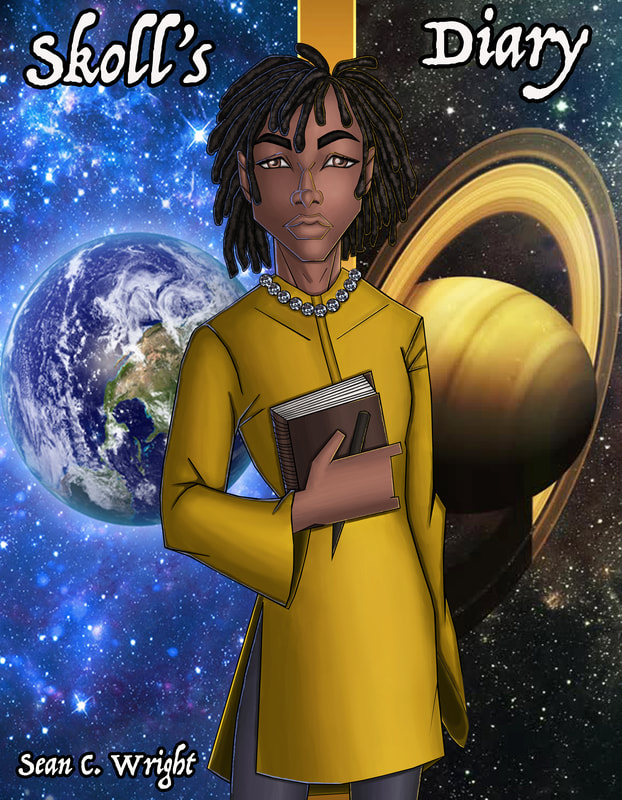
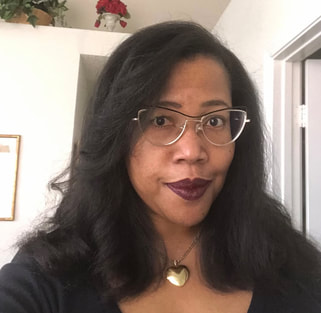

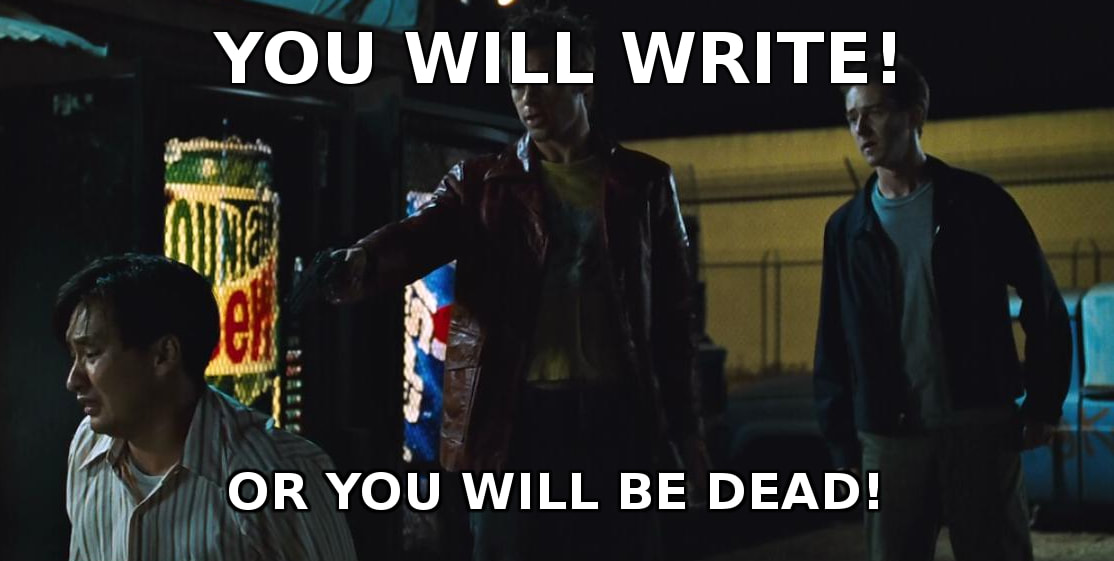
 RSS Feed
RSS Feed